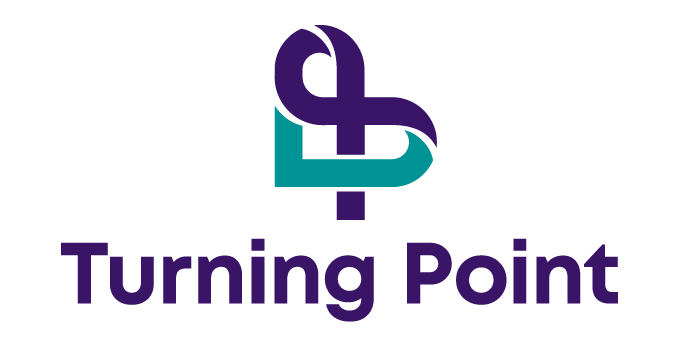Shelter Programs
Adult Programs
Turning Point provides victims/survivors of domestic violence and their children with safe, secure, temporary shelter in a comfortable atmosphere located in Marion and Delaware Counties. When possible, families are provided with their own rooms with a bathroom, while areas such as the living room, dining room, and kitchen are shared. The shelters each have a fully equipped kitchen and a nicely stocked pantry to provide for families’ nutritional needs. For families forced to travel lightly in order to escape the abuse, Turning Point has access to donated clothing and Goodwill vouchers. Transportation to the shelter for families in danger can be arranged with local law enforcement for their safety. Transportation during shelter stay is available on a limited basis.


Support Groups
When you are dealing with domestic violence, it can often feel like you are all alone. Friends and family may not understand or be supportive of your decisions. Turning Point offers community-based support groups.
What can you expect from Turning Point support groups?
-
Support groups are “kitchen table” style, with one facilitator, the Resident Coordinator.
-
The average size of a group is anywhere from 5 to 15 participants, and last for about an hour.
-
Please dress comfortably, some of the activities are hands on and may include the use of arts and crafts.
-
Any other questions you may have can be answered by a Resident Coordinator.
Children’s Programs
Turning Point recognizes the special needs of those children accompanying their parents to the shelter. A comprehensive Children’s Program meets these needs by offering the following services:
-
Individual and group support
-
Assistance with issues surrounding children as witnesses or victims of domestic violence
-
Educational assistance
-
Recreational activities

TURNING POINT’S STAFF IS AVAILABLE TO ASSIST PARENTS WITH:
-
Understanding children’s reactions to domestic violence
-
Non-violent disciplinary techniques
-
Understanding child development
-
Referring parent and children to schools and social service agencies

Pet Accommodations
Turning Point understands that pets can also be affected by domestic violence in a home. Turning Point offers emergency housing accommodations for shelter residents’ dogs and cats at our Delaware County shelter.
-
Three indoor/outdoor dog runs
-
Large fenced outdoor exercise area
-
Two large cat condos
For more information about our pet accommodations, please contact an advocate at 740-382-8988.
Victims Rights Advocacy
Navigating the legal system can be an overwhelming experience for survivors of domestic violence. A victim rights advocate is there to provide crucial support and guidance throughout the process. They are well-versed in Ohio laws that specifically address domestic violence situations, and they can explain these laws to you in a way that relates to your unique circumstances.
Advocates are available to have open conversations with you, taking the time to understand your situation thoroughly. They will explain the various court processes involved in both civil and criminal cases, ensuring that you have a clear understanding of what to expect. Should you wish, advocates can accompany you to legal and court appointments, providing you with emotional support and helping you navigate the system.
In addition to their role in legal proceedings, advocates can offer assistance in other areas. They can accompany you to court hearings, where they can provide you with relevant information and resources pertaining to protection orders, security measures, divorce proceedings, and visitation rights. Furthermore, they can help you access essential community resources such as housing options, financial assistance programs, free legal services, counseling services, and support groups. By connecting you with these resources, advocates strive to empower you and help you rebuild your life after the trauma of domestic violence.
Importantly, advocates are dedicated to your safety. They can assist you in developing a personalized safety plan tailored to your specific circumstances. This plan aims to enhance your security and provide you with actionable steps to minimize risks and protect yourself from further harm.
Remember, as a survivor of domestic violence, you don’t have to face the challenges alone. A victim rights advocate is here to provide compassionate support, empower you with knowledge, and help you navigate the legal system and access vital resources.


HOW CAN A VICTIM RIGHTS ADVOCATE HELP ME?
- Advocates speak with you about your unique situation, explaining applicable court processes in civil and criminal courts.
- Advocates can attend court hearings with you and provide information and resources relevant to protection, security, divorce, and visitation.
- Advocates can help you connect with community resources: housing, financial assistance, free legal services, counseling, support groups, etc.
- Advocates can help you develop a personalized safety plan.
Teen Advocacy


Turning Point’s Teen Advocate can speak with teens, teachers, administrators, and parents about teen relationship issues. Middle schools, high schools, or any interested organization is provided information to help teens navigate the waters of healthy vs. unhealthy relationships as students develop new social situations and enter the dating scene.
Presentations have been developed in compliance with House Bill 19 which requires dating violence education in middle and high school health classes and education. Contact Robin McNeal or Doryan Miller for more information regarding this program.
Healthy Relationship
- Respect for Personal Identity
- Respect for Boundaries
- Mutual Support
- Mutual Trust and Honesty
- Fairness
- Respecting Privacy
- Time Apart
- Emotional and Physical Safety
- Open Communication
- Making Decisions Together
- Owning our Mistakes
- Keeping Commitments
Unhealthy Relationship
- Control or Power
- Inappropriate Jealousy
- Peer Pressure
- Manipulation for Sexual Behaviors
- Unrealistic Expectations
- Isolation from People and Activities
- Disrespecting Personal Identity
- Humiliation
- Harmful Language
- Monitoring Activity
- Threatening Words or Behavior
- Blaming Others
- Minimizing Concern
SAFETY & SELF-CARE APPS
- myPlan: Helps users determine if a friend or family member is in an unsafe relationship.
- Aspire: Appears as a news app but has hidden domestic violence resources and ways to contact people in case of emergency. Download here Apple App Store & Google Play
- Insight Timer: This app features guided meditations, music, and talks posted by contributing experts.
